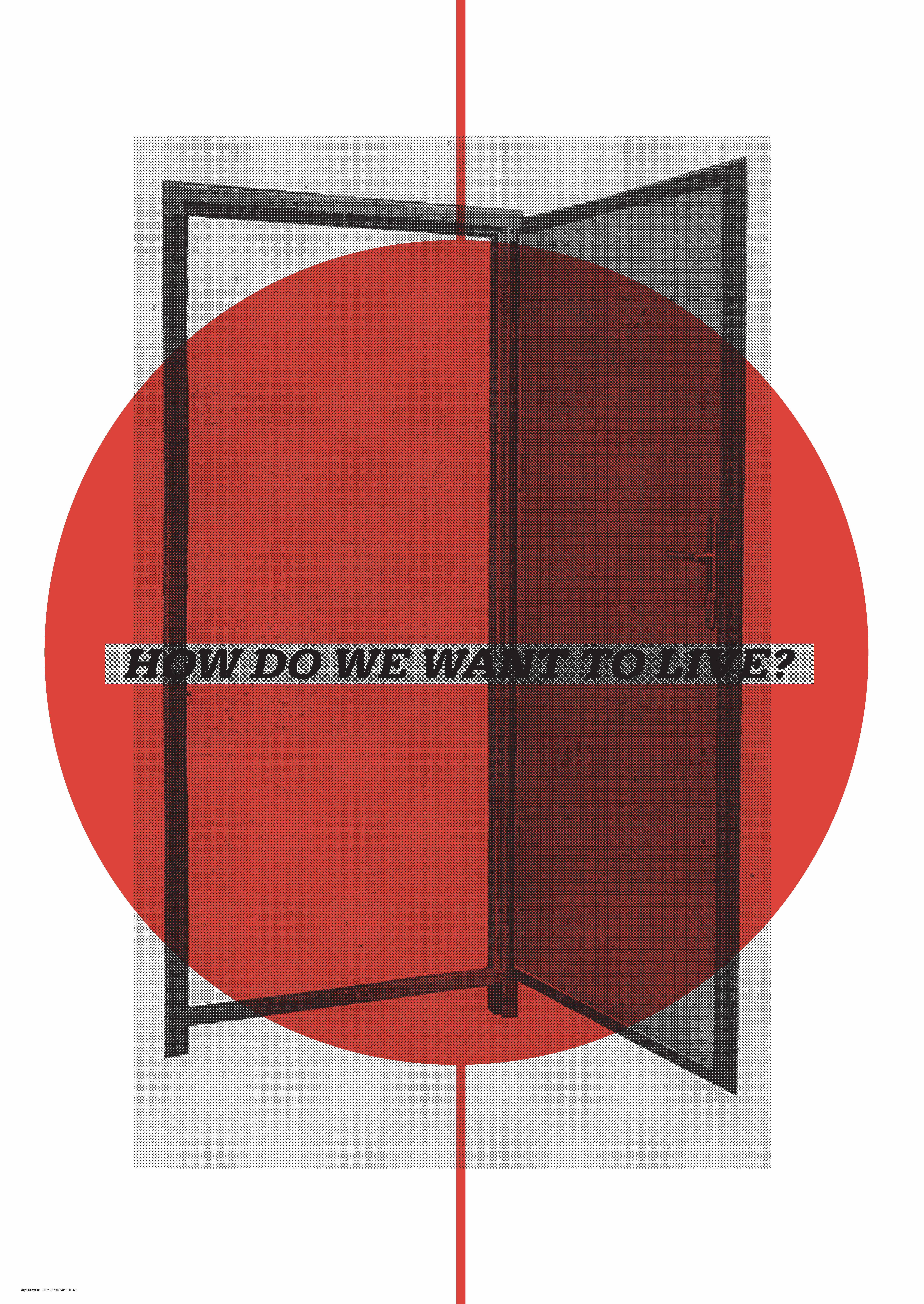Description
Presented by: Nadia Kotova Gallery
Listen to the audio description of this artwork:
A few years ago, the artist created beautiful and sophisticated serigraphs that play on similar ambiguities. The enunciation—the images and phrases—is framed by a refined composition of geometrical forms and precise juxtaposition of colors that guide the viewer’s interpretation. These silkscreens were part of the series of collages titled “Necessary Condition,” which has its roots in the artist’s childhood fascination with science fiction in literature and cinema. However, there is an intriguing ambiguity as the stories here are not fictional. The artist used real documents from the past, including quotes from the 1960s newspapers “Nedelia” (translated as “The Week”) and “Za rubezhom” (translated as “Abroad” or “Overseas”).

